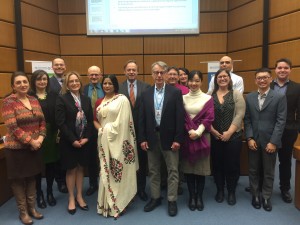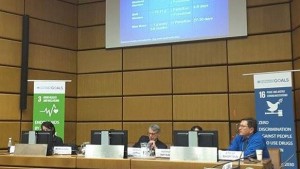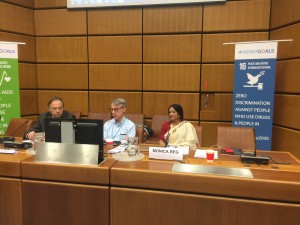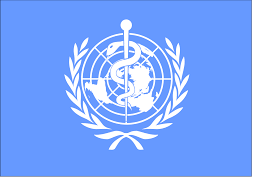In a first that gives HIV-infected patients yet another chance for long lives, surgeons at Johns Hopkins University Medical Center have transplanted a kidney and a liver from a dead donor who was HIV-positive into two HIV-positive recipients.
Viall AH, McCray E, Mermin J, et al. Current HIV/AIDS Reports2016;13(2):95-106
Abstract:
Recent advances in science, program, and policy could better position the nation to achieve its vision of the USA as a place where new HIV infections are rare. Among these developments, passage of the Patient Protection and Affordable Care Act (ACA) in 2010 may prove particularly important, as the health system transformations it has launched offer a supportive foundation for realizing the potential of other advances, both within and beyond the clinical arena. This article summarizes opportunities to expand access to high-impact HIV prevention interventions under the ACA, examines whether available evidence indicates that these opportunities are being realized, and considers potential challenges to further gains for HIV prevention in an era of health reform. This article also highlights the new roles that HIV prevention programs and providers may assume in a health system no longer defined by fragmentation among public health, medical care, and community service providers.
View the paper online: [Download not found]
Pamela Y. Collins, MD, MPH
National Institute of Mental Health
“Grand Challenges: Integrating Mental Health in Research, Policy, Practice”
Grand Rounds is offered by the UCLA CFAR / AIDS Institute, consists of hour-long lunchtime lectures, delivered by invited guests or distinguished members of the Institute faculty, on a broad range of subjects. The aims of the program are to highlight important developments in AIDS-related research, encourage collaborations between UCLA investigators and invited speakers, interest young investigators in AIDS research, and provide information about new findings and new funding opportunities.
Providing HIV-related services in China:
The internet can facilitate HIV prevention among a subset of men who have sex with men by enhancing awareness, service uptake, retention in care and adherence to treatment. Collaboration between the public sector and the community group promoted acceptance by the target population. Task sharing by community groups can increase access of this high-risk group to available HIV-related
services.
AIDS activists say New York lawmakers and Gov. Andrew Cuomo must invest more state funds if they are serious about the state’s goal of ending the epidemic by 2020.
Problem is, lawmakers banned state funding for the exchanges when they legalized them last year, even as Indiana’s worst-ever HIV outbreak struck in another county.
Homelessness is highly associated with HIV, with 5.3% seropositive in 1989. While this is the only domestic study, in 2010, the HIV prevalence among homeless youth in Ukraine was 18.4%. Homeless youth (HY) are likely to have psychiatric disorders, substance abuse problems (usually poly substances, including alcohol), and have homes with high levels of conflict (sometimes because parents have substance abuse, or mental health problems themselves). Many homeless youth were ejected from their home or left due to neglect or abuse. Bartering sex is a means of survival. Risk for HIV comes both from youth’s life circumstances, as well as a history of multiple behavioral risks.
 Dr. Steven Shoptaw, CHIPTS Co-Director, will be giving an invited address on March 11, 2016 in Vienna, Austria, at a meeting of the United Nations Office on Drugs and Crime. The purpose of the U.N. meeting is to develop science-based recommendations on ensuring access to antiretroviral therapies for people living with HIV/AIDS who also use drugs. This is one more example of the exciting and impactful work that is being conducted by CHIPTS investigators.
Dr. Steven Shoptaw, CHIPTS Co-Director, will be giving an invited address on March 11, 2016 in Vienna, Austria, at a meeting of the United Nations Office on Drugs and Crime. The purpose of the U.N. meeting is to develop science-based recommendations on ensuring access to antiretroviral therapies for people living with HIV/AIDS who also use drugs. This is one more example of the exciting and impactful work that is being conducted by CHIPTS investigators.
Dr. Shoptaw is a licensed psychologist and Director of the Center for Behavioral and Addiction Medicine at UCLA. He is a Professor in two departments at UCLA (Family Medicine and Psychiatry and Biobehavioral Sciences) and Vice Chair of Research in Family Medicine. His research portfolio focuses on the treatment of addiction and on HIV prevention in the context of addiction, especially in the Western U.S. where stimulant use is the single strongest predictor of HIV transmission. For over 20 years, he has conducted Phase Ib and IIa randomized clinical trials of medications and behavioral interventions for stimulant dependent individuals. He recently completed a Phase Ib interaction safety study of ibudilast at relevant doses of methamphetamine and is a Co-Investigator on a Phase IIa randomized controlled trial of ibudilast as an outpatient treatment for methamphetamine dependence, 50% of whom are HIV-positive. He is a member of the DAIDS-funded, HIV Prevention Trials Network (HPTN) Executive Committee, and site Principal Investigator for HPTN-073, a feasibility study of Pre-Exposure Prophylaxis (Truvada) in Black men who have sex with men,
Medicine at UCLA. He is a Professor in two departments at UCLA (Family Medicine and Psychiatry and Biobehavioral Sciences) and Vice Chair of Research in Family Medicine. His research portfolio focuses on the treatment of addiction and on HIV prevention in the context of addiction, especially in the Western U.S. where stimulant use is the single strongest predictor of HIV transmission. For over 20 years, he has conducted Phase Ib and IIa randomized clinical trials of medications and behavioral interventions for stimulant dependent individuals. He recently completed a Phase Ib interaction safety study of ibudilast at relevant doses of methamphetamine and is a Co-Investigator on a Phase IIa randomized controlled trial of ibudilast as an outpatient treatment for methamphetamine dependence, 50% of whom are HIV-positive. He is a member of the DAIDS-funded, HIV Prevention Trials Network (HPTN) Executive Committee, and site Principal Investigator for HPTN-073, a feasibility study of Pre-Exposure Prophylaxis (Truvada) in Black men who have sex with men,  a group with 7% incidence in Los Angeles and high rates of stimulant and alcohol use. He is also a Co-PI on a 5-year cooperative agreement (U01 DA036267) to establish a cohort of minority men who have sex with men to investigate interactions between non-injection use of methamphetamine, cocaine, opiates and binge drinking and transmission and progression of HIV.
a group with 7% incidence in Los Angeles and high rates of stimulant and alcohol use. He is also a Co-PI on a 5-year cooperative agreement (U01 DA036267) to establish a cohort of minority men who have sex with men to investigate interactions between non-injection use of methamphetamine, cocaine, opiates and binge drinking and transmission and progression of HIV.
Congratulations to Dr. Cathy Reback, a core investigator of the CHIPTS Combination Prevention Core! Dr. Reback has been selected as one of the recipients of this year’s Women in Leadership Award from the City of West Hollywood for her outstanding work with gay and bisexual men and transgender women living with or at risk of acquiring HIV. She will be presented with this prestigious award on Wednesday, March 23, 2016, hosted by the West Hollywood Women’s Advisory Board and the West Hollywood Chamber of Commerce.
Dr. Reback is a Senior Research Scientist with Friends Research Institute, Research Sociologist with UCLA Integrated Substance Abuse Programs, and the Executive Director of Friends Community Center, a research community site in Hollywood, CA. For over 25 years Dr. Reback’s research has focuses on the intersection of minority sexual and gender identity status, substance use disorders, and HIV risk behaviors among MSM and transgender women. The significance of Dr. Reback’s research has been the application of research in community settings, the early integration of biobehavioral approaches to substance use and HIV prevention, the application of technology as a novel real-time intervention, and the coupling of quantitative and qualitative methodologies. Dr. Reback has an extensive background in conducting community-research collaborations, designing and implementing technology-based interventions, managing large-scale HIV prevention and intervention programs, designing and implementing venue- and street-based intervention programs, conducting qualitative and quantitative research, and evaluating behavioral treatment therapies for both non-treatment seeking and treatment-seeking substance-using populations.
[Download not found]










